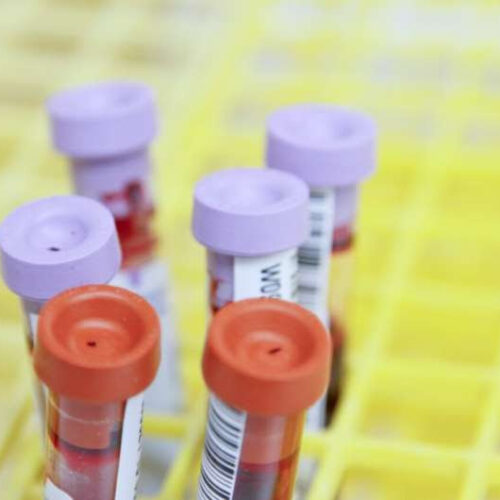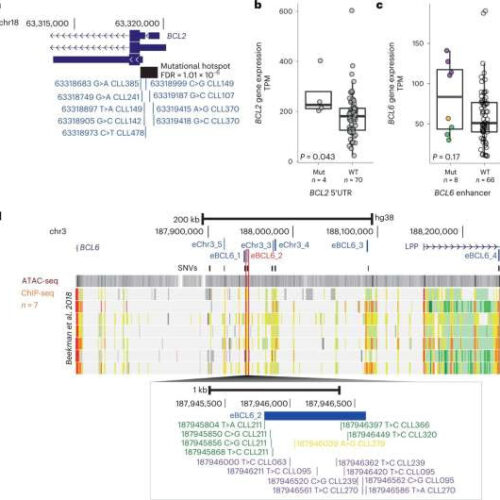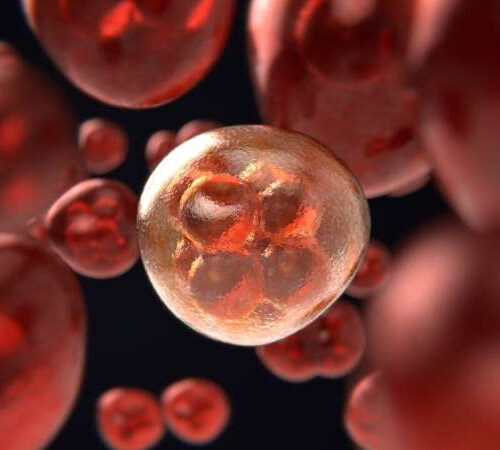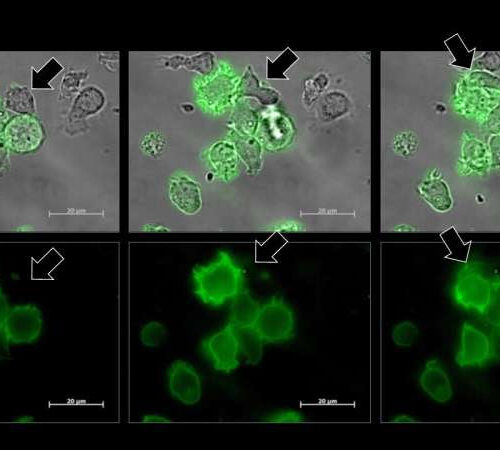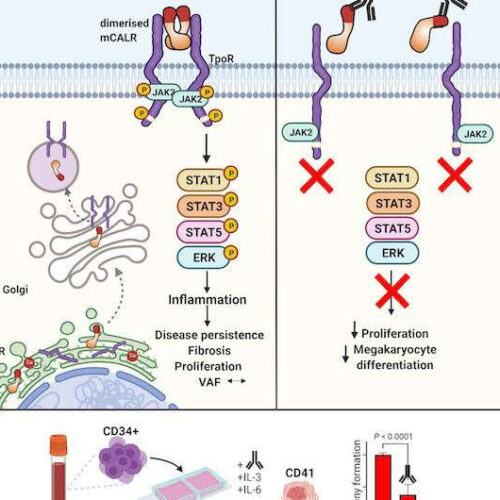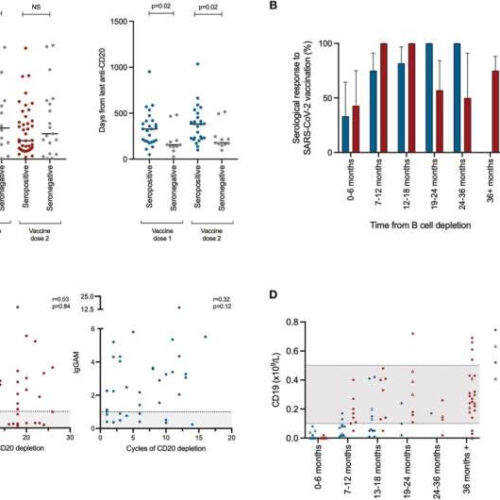by Walter and Eliza Hall Institute of Medical Research Hematological and iron markers are similar in PV patients with and without history of venesection. (A) Hematocrit (HCT); (B) red blood cell count (RBC); (C) ferritin; (D) transferrin saturation; (E) serum hepcidin; (F) serum ERFE, (G) hepcidin:ferritin ratio, (H) platelet count and (I) leukocyte count in...
Tag: <span>Blood cancer</span>
The role of lipids in blood cancer: New insights into uncharted territory
by University of Tsukuba Credit: Kateryna Kon/Shutterstock Cells contain diverse populations of molecules called lipids, which are organic fatty compounds. Lipid metabolism, the synthesis and breakdown of these lipids, plays a key role in regulating the composition and functions of cells and cell membranes. An enzyme known as ELOVL6 elongates chains of fatty acids and is...
Inflammation levels tied to severity of blood cancer
by NYU Langone Health Credit: Unsplash/CC0 Public Domain Severe inflammation weakens the body’s ability to kill cancerous blood cells in people with acute myeloid leukemia (AML), a new study shows. Experiments in human cells also revealed how increasing levels of inflammation, marked by an aggressive reaction of immune cells in the bone marrow, altered the makeup of immune B cells...
Genetic research identifies new subgroups of blood cancer that can be used to predict likely clinical outcomes
by Queen Mary, University of London Noncoding mutations impacting BCL genes. a, Genome view of BCL2 5′ UTR. The significantly mutated region is indicated by a black rectangle. Individual somatic mutations are shown in blue. b, Gene expression of BCL2 in TPM determined by RNA-seq in samples with BCL2 5′ UTR mutations versus WT. Black dots are...
RARE THYMOCYTE CELLS CAN TURN INTO BLOOD CANCER
T-cell acute lymphoblastic leukemia, or T-ALL, affects more than 6,000 Americans each year. Researchers characterized the thymocyte cells—an immune cell present in the thymus—while studying mice with T-ALL. They determined all of the rodent tumors originated from the same type of T cell that expresses a unique set of molecular markers. “Once we identified the cell in...
Improving interferon therapy for blood cancers
by Melissa Rohman, Northwestern University Credit: Pixabay/CC0 Public Domain [Northwestern Medicine investigators have discovered a novel signaling pathway activated by interferons, a group of immune system proteins, that suppresses the anti-tumor response of interferons in patients with a particular type of blood cancer, according to findings published in Nature Communications. Targeting this pathway in combination with...
How blood cancer cells put the immune system’s ‘Natural Killer’ cells to sleep
by The Ottawa Hospital A Natural Killer cell (arrow) turns green after stealing a chunk of a green cancer cell. Cancer cells hijack this process to put Natural Killer cells to sleep and evade the immune system. Credit: Hasim et al., Sci. Adv. 8, eabj3286 (2022) Researchers at the Ottawa Hospital and the University of Ottawa...
Lucky find could hold key to beating rare blood cancer
by South Australian Health and Medical Research Institute (SAHMRI) Graphical abstract. Credit: DOI: 10.15252/embr.202152904 Adelaide researchers have discovered a new method to treat the rare and crippling blood cancer, myelofibrosis, that could have the potential to greatly extend lifespan while also significantly improving quality of life. Myelofibrosis affects 1 in 100,000 Australians and while symptoms...
Blood cancer and arthritis patients taking Rituximab show impaired antibody response to COVID vaccine
by University of Birmingham Immune reconstitution following CD20 depletion and vaccine responsiveness. (A) Time between last administration of anti-CD20 B-cell-depleting treatment and vaccine administration (left panel—haemato-oncology patients [red], right panel—rheumatology patients [blue]). (B) Seropositivity following SARS-CoV-2 vaccination with respect to time from last administration of anti-CD20 B-cell depletion. (C) Association between the magnitude of antibody...
Existing drugs can be used to treat blood cancer gene defects
Cancer occurs when there is a genetic defect which spreads as cells divide. Modern science has tools to detect those genetic genes and maybe we will be able to fix them some day. Scientists at the University of Birmingham and Queen’s University Belfast have revealed that a defective gene normally found in blood cancers could be...

